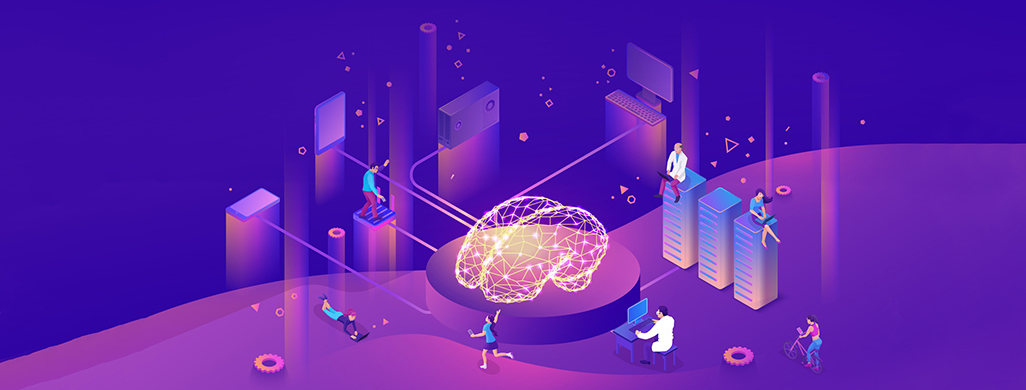
We use cookies to ensure that we give you the best experience on our website.
By using this site, you agree to our use of cookies. Find out more.
The healthcare industry is under the immense pressure of providing better, quick, and efficient monitoring and treatment for the patients. The tech-savvy are assiduous towards healthcare and usher technology to better the services. The Internet of Things was designed to control the pressure, but is it showing progress as expected?

Advances in the medicines and treatment have become indispensable with the rise of chronic and unprecedented illness. Also, a large section of society is old age, which is more prone to disease.
However, technology can't stop the aging and chronic diseases upcoming but surely can make healthcare easier in terms of accessibility and cost. With the help of disruptive technologies, healthcare industries can manage medical checks, the right diagnosis to lessen the need for hospitalization, and many other benefits.
It's pronounced that IoT has been inside the healthcare industry for quite some time, and use cases of this technology will continue to grow. The Internet of Things is undoubtedly capable of transforming the industry completely.
IoT is thought to bring in the mix of new applications, tools, and workflows that ensure the betterment in the patient's care & treatment outcomes. The Internet of Things is more profoundly used as wearable technology than medical devices. A significant likable and interest in the use of these wellness devices have potentially risen, which includes smart fabric, glucose monitoring devices, electrocardiogram patches, pulse oximeters, and other devices that can free patients from staying hospitalized.
With the extensive centralization and interconnection capacities of IoT brings the health monitoring, remote treatment, hospital physical, and digital infrastructure organization to a whole new level.
The paradigm of technology for healthcare has unparalleled benefits that can improve the quality and efficiency of treatments and seamlessly improve the health of the patients.
As the Internet of Things is derived to connect devices, it is a deal-breaker for the healthcare industry to monitor patients any time and save thousands and millions of lives from emergency conditions such as heart failure, high diabetes, asthma attacks, & more.
With the help of smart devices, real-time monitoring has never been so easy, connected with the app. This connectivity helps in gathering health-related data & then use the connection (data) of a smartphone to transfer to the respective physician.
You can use IoT to automate patient care workflow. IoT, with the help of new technologies and healthcare mobility solutions, enables interoperability, machine-to-machine communication, information exchange, and data movement for the next-gen healthcare facilities to make deliveries effective.
When you receive end-to-end connectivity and treatment remotely, the cost also gets reduced of unnecessary visits with improved allocation, planning, and quality resources.
Since the healthcare industry owns a vast data of everyday patients, which becomes mundane as well as the arduous task to store and manage. Also, acquiring data records from multiple sources and analyzing them become much more tedious. Thus an IoT device can easily collect, analyze, report, and store the real-time data of the patients in the cloud.
Healthcare needs to access the final report with graphs overcloud. Above all, with all sorted and organized with IoT, healthcare operations can provide vital healthcare analytics and data-driven insights to the organizations. The valuable information provided can speed-up decision-making and drop errors.
Because IoT allows collecting and storing vast data of patients and illness, thus could be used for the statistical study to support medical research. IoT has a powerful and great impact on medical research as it enables introduction to the bigger and better medical treatments. This can also enhance service quality for patients and assistance required.
Patients can always stay connected with their doctors, no matter how far they are. They can always approach their doctor, even during emergencies, through their smart devices and mobility solutions of IoT. We shall see numerous healthcare delivery chains predicting to build machines to distribute patient's prescribed drugs too.
This is the most significant challenge that IoT devices can have. Since IoT devices are connected through the internet, which is open globally, chances of getting the data hacked advances. IoT devices lack security protocol and standard due to which the patient's unbolted confidential data stays at risk.
Another hindrance is the integration of multiple devices. The reason behind the hindrance and interruption is the miscommunication between the device manufacturers. Due to the different communication protocols and standards, the aggregation of the data becomes complicated. Thus this slows down the whole process and reduces the scope of scalability of IoT in the healthcare industry.
Data Aggregation can become difficult when there is non-uniformity of the connected device's protocol. Thus this can abate the quality of decision making. Also, this concern is escalating with more and more connected devices as well as a pile of data.
Yes, this is a considerable challenge, however, the aforementioned is also an opportunity, in respect to future perspective. IoT has not yet made healthcare solutions affordable for everyone. The boom of disruptive technologies is still exorbitant, especially in a developed country. The stakeholders and the IT Company in Singapore still need to work on cutting the cost of the IoT development to reach the maximum and attain total optimization.
The disruptive technology, the Internet of Things brings hope to the healthcare industry with a new paradigm. However, IT companies in Singapore need to work a lot on their limitations for healthcare providers and the patients to take full leverage of it.
Leave a Comment
Your email address will not be published.